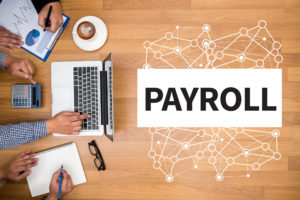Did you know the average household debt in the US is at $38,000? This excludes mortgages. You can easily see how it can feel impossible to pay everything off.
This becomes especially true when you look at how many bills there are to pay. Some have to pay multiple credit cards, personal loans, student loans, and medical bills.
If you incur debt from many lenders, a good option is to use debt consolidation loans. It’s convenient since it allows you to pay a single lender instead. In this guide, we’re going to tackle the pros and cons of debt consolidation.
Ready to learn the benefits of consolidated debt? Read on and find out more today.
Understanding Debt Consolidation
Debt consolidation aims to gather your debts into a single account. It comes with a standard monthly payment. Its main idea is that you’ll have fewer payments and a lower interest rate.
When you’re trying to merge your debt, you can get either unsecured or secured loans. The former doesn’t need anything in your possession to pay the loan. It means it’s based solely on your promise to pay later on.
For the latter, you’ll need to pledge a specific property to secure the loan. For instance, getting a mortgage loan means that you pledge your house for repayment security. If you fail to pay based on the agreed terms, your mortgage holder will foreclose on your house.
Consolidated loans of both types have their own set of advantages and disadvantages. The following are the pros and cons of debt consolidation. It applies to both unsecured and secured loans.
You can also read this article about personal loans and learn more.
Debt Consolidation Using Secured Loans
You have lots of options for debt consolidation when you opt for secured loans. Some examples include refinancing your house, taking out a second mortgage, or getting a home equity line of credit. You can get a car loan or use other assets as a means of securing it.
If you have a life insurance policy with an equivalent cash value, you can try getting a loan against it. But the question still stands: is this the right loan options for your situation? Here are some things you can consider:
Pros of Debt Consolidation Using a Secured Loan
The main benefit of using secured loans is their lower interest rates. It places less strain to your finances, making it easier for you to save money that would otherwise go to interest payments. A lower interest rate will make your monthly payments lower and less difficult to pay.
In some cases, you can receive tax deductions for your interest payments. If you pay interest on loans secured by real estate, it’s likely to become a tax deduction.
But the best part is that secured loans are easier to get. The main reason is that your lender is less at risk. That will make them more likely to approve your loan application.
Cons of Debt Consolidation Using a Secured Loan
The huge drawback of consolidating your unsecured loans into a single secured loan is risking your property. In the unlikely event that you can’t pay it back, you’ll lose anything you pledged to secure the loan. That could mean your house, car, life insurance, or your retirement fund.
Life insurance, retirement funds, and certain other assets might not be available if your loan isn’t paid back before it becomes necessary for you. Another worrying aspect of secured loans is that the repayment period might be longer than the debt you tried consolidating. Depending on the types of individual debts you have, the interest payment might be higher in the long run.
Debt Consolidation Using Unsecured Loans
Unsecured debt consolidation loans used to be the norm. But nowadays, it isn’t as available to the people who need them. As a general rule, you need to have a great credit score for your unsecured loan to get an approval. A good substitute is getting a no-interest, introductory rate using a credit card.
Pros of Debt Consolidation Using an Unsecured Loan
Your biggest benefit of using an unsecured loan is that you won’t need to risk any of your property. The interest rate will most likely be higher compared to its secured counterpart. But it can become lower than getting charged by different credit card balances.
That will result in a lower overall interest rate, making payments easier from a long-term standpoint.
Cons of Debt Consolidation Using an Unsecured Loan
If you don’t have the best credit score, getting this type of loan might be out of the question. That’s why a lot of people in need of this loan might not have the right set of qualifications. As said before, interest rates are much higher compared to secured loans, so you’re likely to pay more each month.
With high interest rates, you might not make a dent to your debt. It’s especially the case when you’re struggling to afford the minimum monthly payments. In some cases, you might end up paying the interest instead of reducing the actual debt.
It’s a tricky process to use balance transfer options using no-interest or low-interest credit card offers. There’s often a transfer fee written somewhere in the fine print that will negate your savings. You might also encounter some rules that can reduce the effectiveness of the benefits.
The no-interest or low-interest period is often short for the credit card they offer. If you aren’t able to pay your debt during this time, it’s possible to end up paying a higher interest rate.
Weigh the Pros and Cons of Debt Consolidation
These are the pros and cons of debt consolidation, regardless of whether it’s secured or unsecured. To get the most out of these, you need to look at your financial situation. Use the type of loan that works best, reducing your interest rates and monthly payments.
But it doesn’t end here. If you need more financial tips and tricks, we’ve got you covered. Feel free to read our other guides now to get the help you need.


